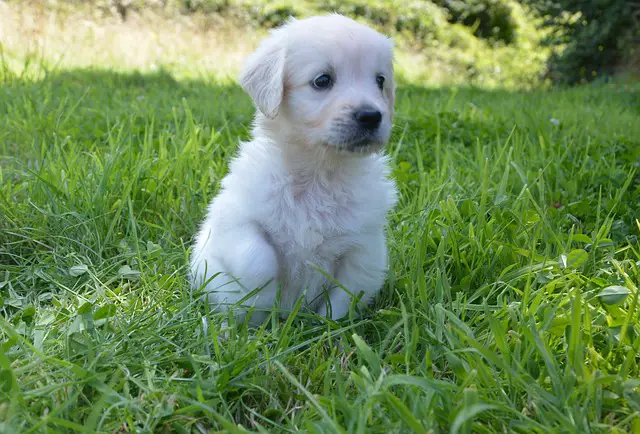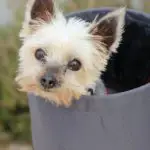“Should you punish your dog for pooping in the house?” – A neighbor who had recently adopted a Labrador puppy asked me this the other day.
I told him to never punish his new dog as that would only make it aggressive or timid or even encourage other bad behaviors.
Punishment such as rubbing the dog’s nose in the potty or dog urine does not work. Instead dog owners must reinforce good behaviors..
If you have a new dog that you’re potty training or even an older dog that has recently started defecating indoors, then this guide is for you.
Should You Punish Your Dog for Pooping in the House?
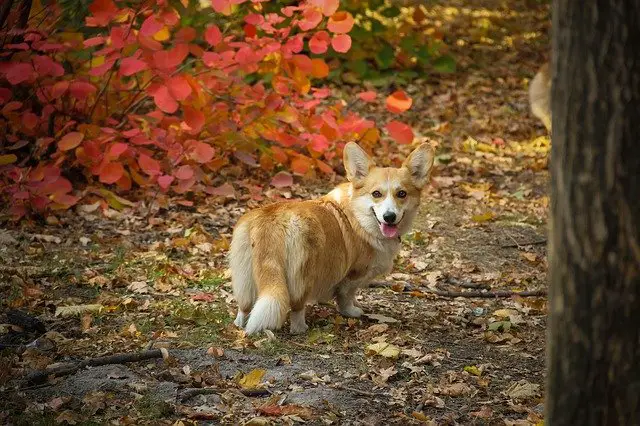
It can be very annoying for new puppy owners to come home to poop on the rugs.
Even more frustrating is when a fully potty trained dog, starts pooping indoors.
In any case, punishing, shouting, or hitting the dog isn’t a solution. The best way to manage this situation is with love and understanding.
In the case of a new puppy, you simply need to follow housebreaking steps more patiently and consistently.
If it is an older dog, you’d want to try to discover the reasons why your pet has suddenly started defecating indoors.
Bottom-line: never punish your dog for this behavior. Punishing won’t help you achieve anything. In fact; it could make your pet very timid or even aggressive.
The better solution in this case is to reinforce positive behavior. This means rewarding your puppy or adult dog when s/he poops in the designated spot. With consistent positive reinforcement training, you will have a well-behaved dog that never defecates indoors.
Why Shouldn’t You Punish your Dog for Pooping Indoors?
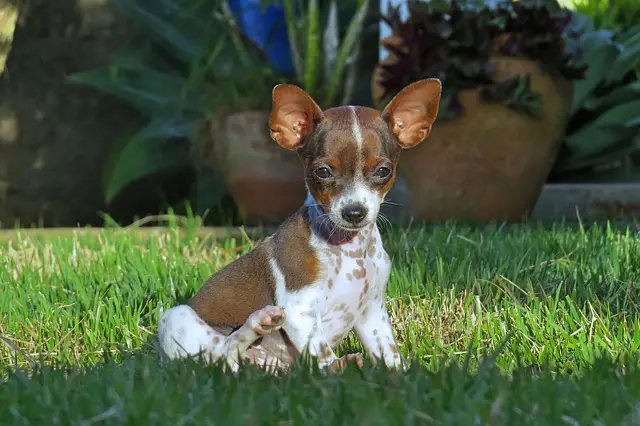
There are several ill-effects of punishing a dog for bad behavior:
1. Could lead to avoidance behavior
If you punish your dog to the extent that it gets scared or hurt, then it could completely avoid potty time. It might try holding it in and that could cause many health issues. Worse still, your dog might avoid you.
2. Could make the dog aggressive
Some dogs react to punishments by getting aggressive and trying to hurt you back. In some cases, the aggression can also become elicited aggression where the dog tries to hurt another house pet or even a child in the house. Sometimes, these dogs also start showing generalized aggression to locations and objects if you hurt it through constant punishment.
3. Might instill fear in the dog
Punishing a dog also does not help because the pet could start living in permanent state of fear. Hiding, placing its tail between its legs, shivering – these are some signs that a dog is terrified of you.
4. It could reinforce the bad behavior
Punishment often does not solve anything when it comes to dog training. The dog may not understand at all why it is being punished. This is where positive reinforcement shows better results.
If you praise and treat your dog for pooping outdoors instead of punishing it for pooping in the house, it is more likely to understand why it is being rewarded. This is especially more effective if you do it consistently. On the other hand, if you consistently punish your dog, your actions may not decrease the behavior and might only escalate the hurt.
What Are Some Reasons Why a Dog Might Poop Indoors?
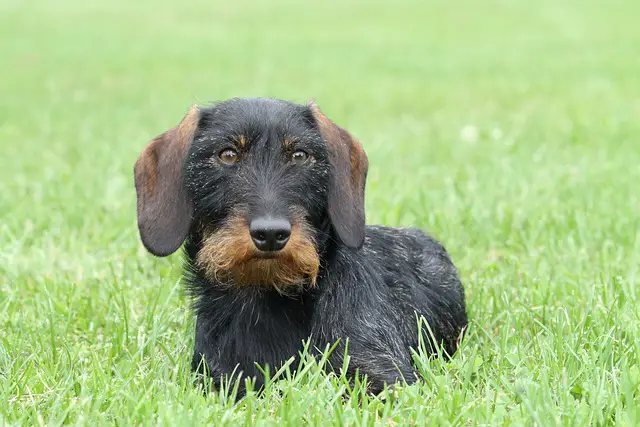
A dog could poop indoors due to the following reasons:
1. It is not fully potty trained
People expect miracles when it comes to potty training their pet. They believe that a pup can get potty trained within a week.
That is not so. Even a smart pup could take about 5-6 weeks to be fully potty trained. Until then, you should expect accidents indoors.
During this dog training period, you will have to be very consistent and patient.
A puppy has a small bladder and a rapid metabolism. It needs to poop at least 2-3 times a day. That is why you must ensure giving it frequent potty breaks outdoors or train it to go on potty pads indoors.
Which brings us to the next reason why dogs might poop indoors…
2. Not adhering to a potty schedule
In the puppy potty training phase, you must adhere to a schedule. This includes several trips to the ‘designated toilet area’ for peeing and at least 3 to 4 trips for ‘number two’.
Small pups usually have bowel movement right after their meals. Since most pups eat 4 times a day, you need to take it out four times a day for potty.
Also Read: How Many Times a Day Should a Dog Poop
Sometimes pet parents get busy and they do not adhere to this schedule. This could result in indoor pooping – and through no fault of the dog’s.
3. Adopted or re-homed dogs
Indoor soiling is also frequently seen in adopted or re-homed dogs.
A dog that comes from an animal shelter or is abandoned by the owners is more likely to poop indoors after being re-homed despite being fully trained.
The trauma of new home and surroundings can also cause indoor accidents. Dogs like their routine and any change in their circumstances could stress them out.
4. Medical issues
Often, dogs with intestinal parasites or inflammatory bowel disease could also defecate indoors.
A dog that eats something bad from the trash or picks up stuff from the food could also have diarrhea and might not be able to hold it in.
An older dog might develop cognitive issues or canine dementia (which is similar to Alzheimer’s in humans). This can also cause indoor soiling.
Sometimes, an aging dog’s anal muscles simply cannot hold it in and resultantly the senior dog might start pooping indoors all of a sudden.
5. Stress
A change in dog’s environment and routine is one of the main reasons behind indoor soiling. In addition to change in place, a dog could get stressed when there is a new pet or a baby in the house. A dog owner who has been working from home suddenly starts a full-time job outside can also be one of the reasons behind stress and subsequent indoor defecation.
6. Separation anxiety
Another factor that could cause a dog to defecate indoors despite being fully house-trained is separation anxiety.
Some dog breeds like Chihuahuas are known to have terrible separation anxiety and might start defecating indoors when the owner leaves it home alone for prolonged periods.
7. Dietary changes
If you have recently changed your pet’s food and it starts defecating indoors, then there is a chance that it has food intolerance or an allergy to certain ingredient in the food.
The ingredient may cause diarrhea or even more number of bowel movements than your dog usually has. In the event you are unable to see the signs that it wants to ‘go’ or you aren’t at home when the pet wants a potty break, it could result in indoor potty accidents.
Why is My Dog Purposely Pooping Indoors?
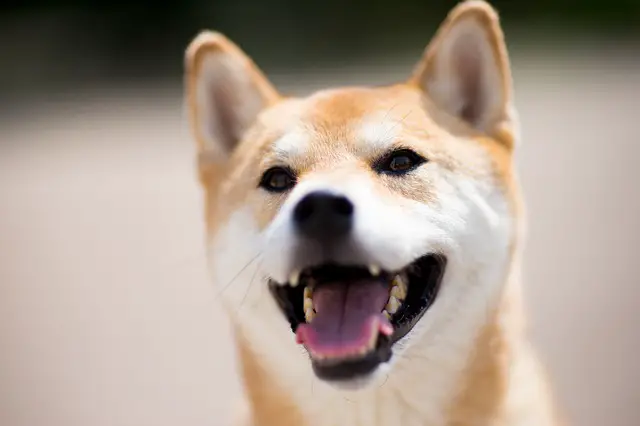
Dogs do not think the way humans do.
No dog will purposely poop indoors. A fully potty trained dog will have a valid reason behind the sudden indoor pooping.
If none of the above reasons apply to your pet, it is best to consult your vet or a dog trainer to find out the reasons why your dog has suddenly started pooping in the house.
Often, dietary changes, intestinal parasites, eating poop, and IBD could be the reasons behind indoor defecation.
Once you begin the right treatment and change your pet’s routine, the indoor pooping will minimize too.
Do Dogs Revenge Poop Indoors?
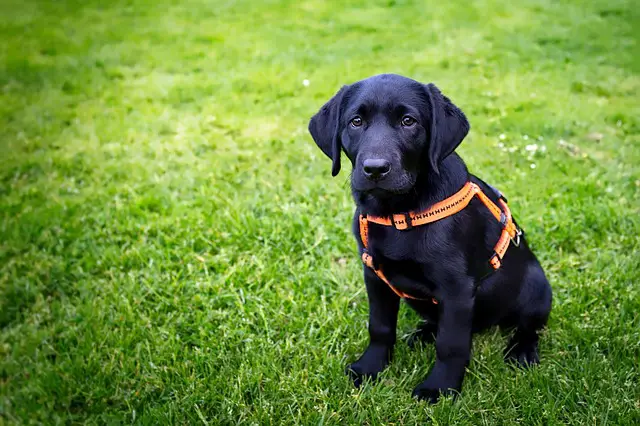
As stated earlier, dogs do not act or think the way humans do. Certainly, they are capable of human emotions like love and jealousy, but revenge isn’t one of the emotions that dogs are capable of.
If your dog has recently started having potty accident, it may not be an act of revenge. It is most likely a medical issue or severe separation anxiety.
If something has changed in your pet’s routine – there is an addition in your household like a new dog, cat, or a baby, or you have started leaving it home alone for prolonged periods, then the stress of this change could be the reason behind indoor pooping.
No dog will take revenge on its owners. That isn’t how dogs are wired to think.
How to Stop a Dog From Pooping In The House?
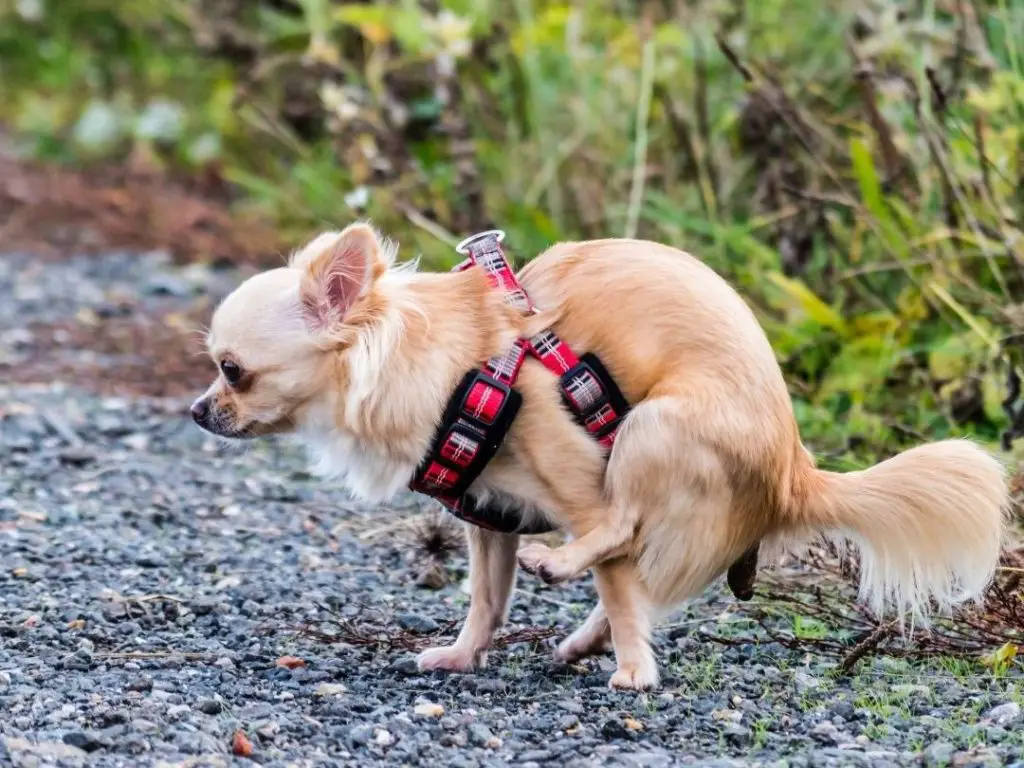
Here are some steps to take when you want to stop your dog from pooping in the house:
1. Learn to watch for cues
Your dog will show you signs it wants to go. Most dogs whine, sit near the door, and start sniffing and circling. When you see these cues, clap your hands loudly, say NO! and then immediately take your dog to poop outdoors or on potty training pads.
The moment your dog goes potty on the pad/designated spot/potty area, praise it and reward it right away. Be consistent so your pet will soon understand that it should only go number two on the pad/designated spot.
2. Give your pet frequent potty breaks
Most adult dogs need to poop once in the morning and once in the evening.
Puppies on the other hand need to poop after every meal – which is three to four times a day.
Give your dog adequate potty outings based on its age. This way, it won’t have any reason to poop indoors.
If you work outside of home, have a neighbor or a family friend or dog walker to walk your dog during the time you are gone. If that isn’t a solution, train it to go in your yard or on potty pads or litter box placed at a convenient location.
3. Crate train your dog
Dogs never soil their sleeping quarters. So crate training is the best way to prevent inappropriate urination. Of course, you must let your pet out of the crate several times for potty.
4. Train it to use a bell
Bell training is a great way to get a dog to tell you that it wants to ‘go potty’.
- Hang a bell at a convenient location usually by the door. It should be loud enough for you to hear when your pet uses it.
- Let your dog get familiar with the bell. Teach it to touch the bell with its paw or its nose.
- Take it to the bell, touch it, ring it and use a command word like ‘potty’. Then take your pet outside for potty.
- Do this consistently and reward your pet every time it goes potty outdoors.
- It is important to teach your dog to only use the bell when it wants to go potty and not all the time.
FAQs on Should You Punish Your Dog For Pooping in the House?
1. What can I spray on the floor to stop my dog from pooping on it?
Spray some enzymatic cleaners or strong pee deterrents with orange scent to repel your dog from pooping. Most dogs hate these scents. You can also use a solution of vinegar and water. These will break down the stench and deter a dog from pooping or peeing in the same spot.
2. What is the best surface for a dog to poop on?
Dogs can be trained to poop on pea gravel, dog potty pads, and even on grass. However, some owners do not like dogs using their lawns as a potty area. In such a case, walk your dog to the Dog Park or around the block and carry poop bags to pick up and discard the poop.
3. Why do dogs circle when they poop?
Dogs circle when they poop to watch out for predators. They also circle to mark their territory. As they circle, their anal glands express unique scent that tells other dogs about their potty and the important pheromones on it. This way, they send a message to other dogs in the area.
Conclusion
Should You Punish Your Dog For Pooping in the House?
No. Punishing a dog for bad behavior never helps. It could make a dog fearful and even aggressive. Instead, reinforce positive behavior – teach your pet to poop outdoors and when it does, praise and reward it. This will show better results and also create a loving bond between you and your pet.
